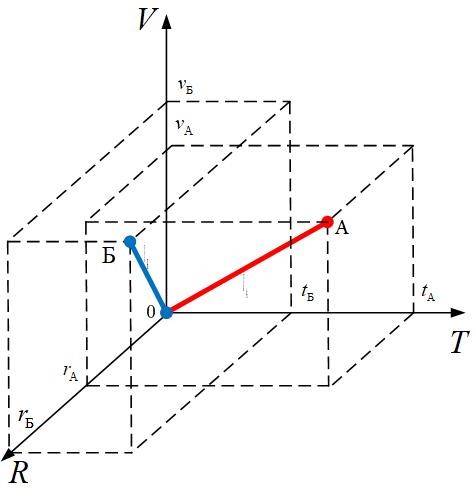
Technical Systems Effectiveness Management Technique
https://doi.org/10.31854/1813-324X-2024-10-2-83-91
EDN: TYFBGV
Abstract
Currently, the task of performing a target function by a technical system with minimal resource costs is urgent. Obtaining the beneficial effect of a vehicle depends on many factors, which can become the basis for the formation of a control effect on the functional part of the system. At the same time, it is necessary to take into account the importance of a useful (target) effect in order to manage the technical systems effectiveness. The purpose of this article is to describe an instrument that allows adaptively redistributing the resource spent on the implementation of a purposeful process in the vehicle, based on the requirements of the consumer function and the target effect. As a result of the conducted research, the article proposes a technique for redistributing the resource of a technical system in the interests of its effectiveness management. The features of the presented technique are the visibility of its results presentation, as well as the possibility of application in evaluating the effectiveness and it`s management in relation to various types of technical systems, which will allow to substantiate the practical significance of obtained results.
About the Authors
K. SazonovRussian Federation
R. Mikhailov
Russian Federation
A. Ratoushin
Russian Federation
References
1. Petuhov G.B. Fundamentals of the Theory of the Effectiveness of Purposeful Processes. Part 1: Methodology, Methods, Models. Leningrad: USSR Ministry of Defence Publ.; 1989. 600 p. (in Russ.)
2. Petuhov G.B., Jakunin V.I. Methodological Bases of External Design of Purposeful Processes and Purposeful Systems. Moscow: AST Publ.; 2006. 504 p. (in Russ.)
3. Alekseev O.G., Anisimov E.G., Anisimov V.G. Models of the Distribution of the Means of Destruction in the Dynamics of Combat. Moscow: USSR Ministry of Defence Publ.; 1989. 109 p. (in Russ.)
4. Anisimov E.G., Anisimov V.G., Penner Ya.A. Method of allocation of heterogeneous resources while managing of organizational-technical systems. Voprosy oboronnoj tekhniki. Seriya 16: Tekhnicheskie sredstva protivodejstviya terrorizmu. 2016;3-4 (93-94);20–26. (in Russ.) EDN:VUWHAJ
5. Vladimirov V.I., Vladimirov I.V. Basis of Assessment of the Conflict-Stable States of Organizational and Technical Systems (in Information Conflicts). Voronezh: Military Aviation Engineering University Publ.; 2008. 231 p. (in Russ.)
6. Kostarev S.V., Karganov V.V., Lipatnikov V.A. Technologies of Information Protection in the Conditions of Cybernetic Conflict. Saint Petersburg: Military Communications Academy Publ.; 2020. 716 p. (in Russ.)
7. Lipatnikov V.A., Shevchenko A.A. Mathematical Model of Information Security Management Process for a Distributed Information System under Conditions of Unauthorized Attacker Impact. Information Systems and Technologies. 2022;3(131):121–130. (in Russ.) EDN:KSBCGK
8. Boyko A.A. Cyber Security of Automated Systems of Military Formations. Saint Petersburg: Naukoemkie Tekhnologii Publ.; 2021. 300 p. (in Russ.)
9. Mistrov L.E., Golovchenko E.V. Method for Assessing the Control of Conflict-Resistant Information System of Aircraft Formation. Information and Economic Aspects of Standardization and Technical Regulation. 2021;1(59);28–35. (in Russ.) EDN:JHPFRO
10. Chukliaev I.I., Morozov A.V., Bolotin I.B. Theoretical Foundations of Optimal Construction of Adaptive Systems of Comprehensive Protection of Information Resources Distributed Computing Systems. Smolensk: Military Academy of Army Air Defence Publ.; 2011. 227 p. (in Russ.)
11. Makarenko S.I. Models of the Communication System under Conditions of Deliberate Destabilizing Influence and Conducting Monitoring. Saint Petersburg: Naukoemkie Tekhnologii Publ.; 2020. 337 p. (in Russ.)
12. Kotsyniak M.A., Kuleshov I.A., Kudryavcev A.M., Lauta O.S. Cyber-Resilience of the Information and Telecommunications Network. Saint Petersburg: Boston-spektr Publ.; 2015. 150 p. (in Russ.)
13. Tavalinskiy D.A., Krasikov D.A. Graphic Dynamic Modelling of Information Telecommunication Network in Interests of a Rational Distribution of Resources. Dynamics of Complex Systems - XXI century. 2022;16(3):40–46. (in Russ.) DOI:10.18127/j19997493-202203-04. EDN:DRZZKH
14. Maltsev G.N, Onufreev A.Y., Razumov A.V. Methodological Recommendations on the Formalized Formulation of the Scientific Research Problem in Dissertations in Military Scientific Specialties. Armament and Economics. 2023;3(65):9–23. (in Russ.) EDN:FKWJMW
15. Sazonov K.V., Prisyazhnyuk S.P. Potential Informative Content as a New Characteristic of Reflection of a Material Object. Information and Space. 2006;2:100–105. (in Russ.) EDN:KXAJJX
16. Mikhailov R.L. New Basic Approach and Methodic for Assessing of Information Conflict Superiority. Infocommunikacionnye tehnologii. 2021;19(1):7–20. (in Russ.) DOI:10.18469/ikt.2021.19.1.01. EDN:SOFNMK
17. Mikhailov R.L. Analysis of Approaches to the Formalization of the Indicator of Information Superiority Based on the Theory of Assessment and Risk Management. Systems of Control, Communication and Security. 2017;3;98–118. (in Russ.) EDN:ZXPLMN
18. Ratoushin A.P. Application of Iterative Optimization to Solve the Problem of Situational Configuration of a Distributed set of Interrelated Operations as Part of a Hierarchical Procedure for Identifying Digital Signals. Electromagnetic Waves and Electronic Systems. 2022;27(2):72–85. (in Russ.) DOI:10.18127/j15604128-202202-09. EDN:ABEIKK
Review
For citations:
Sazonov K., Mikhailov R., Ratoushin A. Technical Systems Effectiveness Management Technique. Proceedings of Telecommunication Universities. 2024;10(2):83-91. (In Russ.) https://doi.org/10.31854/1813-324X-2024-10-2-83-91. EDN: TYFBGV

































